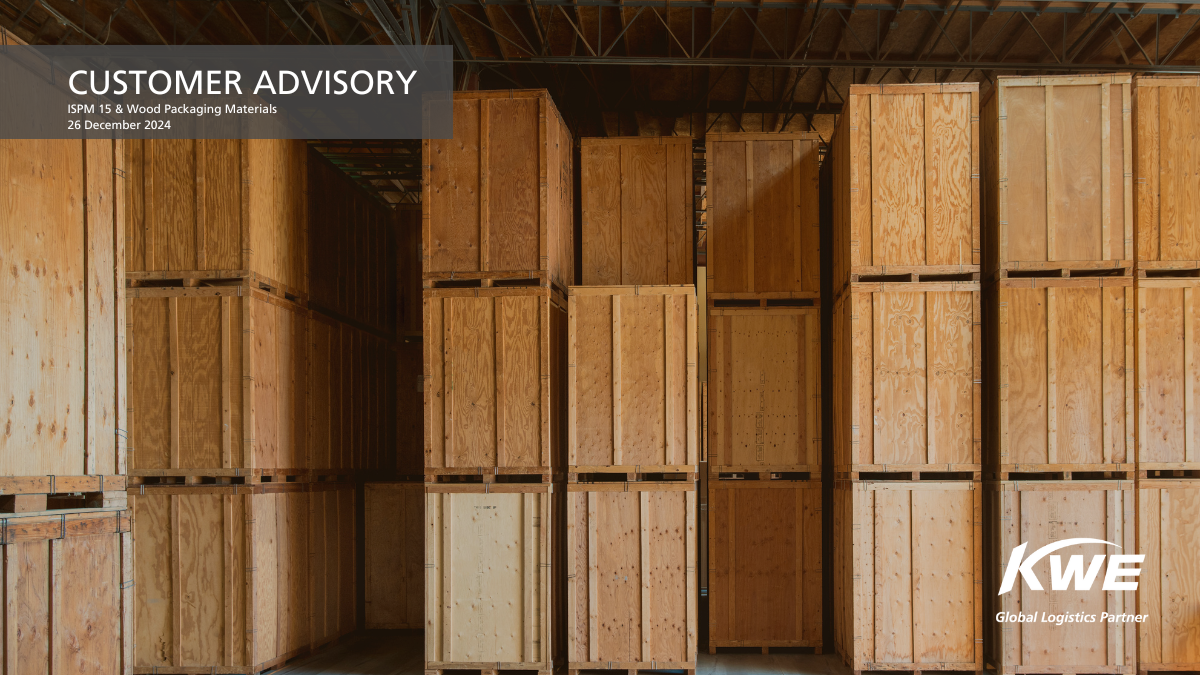Quote
ISPM 15 & Wood Packaging Materials

A leading news announcement on the morning of December 19th stated that the world's largest hornet, native to Asia, had mysteriously arrived in 2019. Intense eradication efforts prevented the species from spreading, and the northern giant hornets, popularly known as "murder hornets," have now been wiped out in North America within five years of first being spotted! So how did they even get here?
Wood packaging materials move from country to country and accompany many different commodities. In March 2002, the Commission on Phytosanitary Measures (CPM) adopted ISPM 15 Guidelines for Regulating Wood Packaging Material in International Trade. So simply, what is ISPM 15?
ISPM 15 – meaning International Standards for Phytosanitary Measures – is a regulation for wood packaging material used in international trade. This regulation covers the different types of wood packaging material, including dunnage, crating, packing blocks, drums, cases, load boards, pallet collars, skids or pallets, and other wooden units that secure, protect, or assist in the movement of cargo or commodities. Any wood material thicker than 6mm used for shipping products between countries is subject to the regulation and requires heat treatment.
In April 2009, a revised standard, ISPM 15 Regulation of Wood Packaging Material in International Trade, was adopted by CPM-4. In 2013, CPM-8 adopted the revised Annex 1, Approved Treatments Associated with Wood Packaging Material, and made consequential changes to Annex 2, The Mark and Its Application. ISPM 15 establishes guidance to national plant protection organizations (NPPOs) on the regulation of wood packaging material, which is an important pathway in the movement of quarantine pests. ISPM 15 sets out harmonized requirements for the application of treatments to render wood packaging material practically free of quarantine pests. ISPM 15 also describes the use of an internationally standardized mark to identify compliant wood packaging material.
The role of interpreting and implementing ISPM 15 remains the responsibility of NPPOs. In the U.S., that organization is the United States Department of Agriculture's (USDA) Animal and Plant Health Inspection Service (APHIS).
APHIS regulates wood packaging materials (WPM) in the United States and sets standards based on the International Plant Protection Convention's (IPPC) International Standard 15 (ISPM 15). U.S. Customs and Border Protection (CBP) and the Animal and Plant Health Inspection Service (APHIS) developed a checklist through the Joint Agency Task Force. Please share this checklist widely, as it serves as a practical guide for foreign exporters and shippers to verify WPM compliance before shipping goods to the United States. CBP and APHIS are committed to stepping up enforcement on this issue. By following the checklist, exporters can help prevent delays, inspections, or penalties associated with noncompliance with WPM importation standards.
As an importer, you can ensure that your shipments meet these standards. This is a critical step in ensuring the integrity of your global supply chain. For more information, visit the Wood Packaging Material webpage on CBP.gov.
Additional Resources:
For consultation services in complying with this or any other program, you may also reach out to us at: customs_compliance_group@am.kwe.com